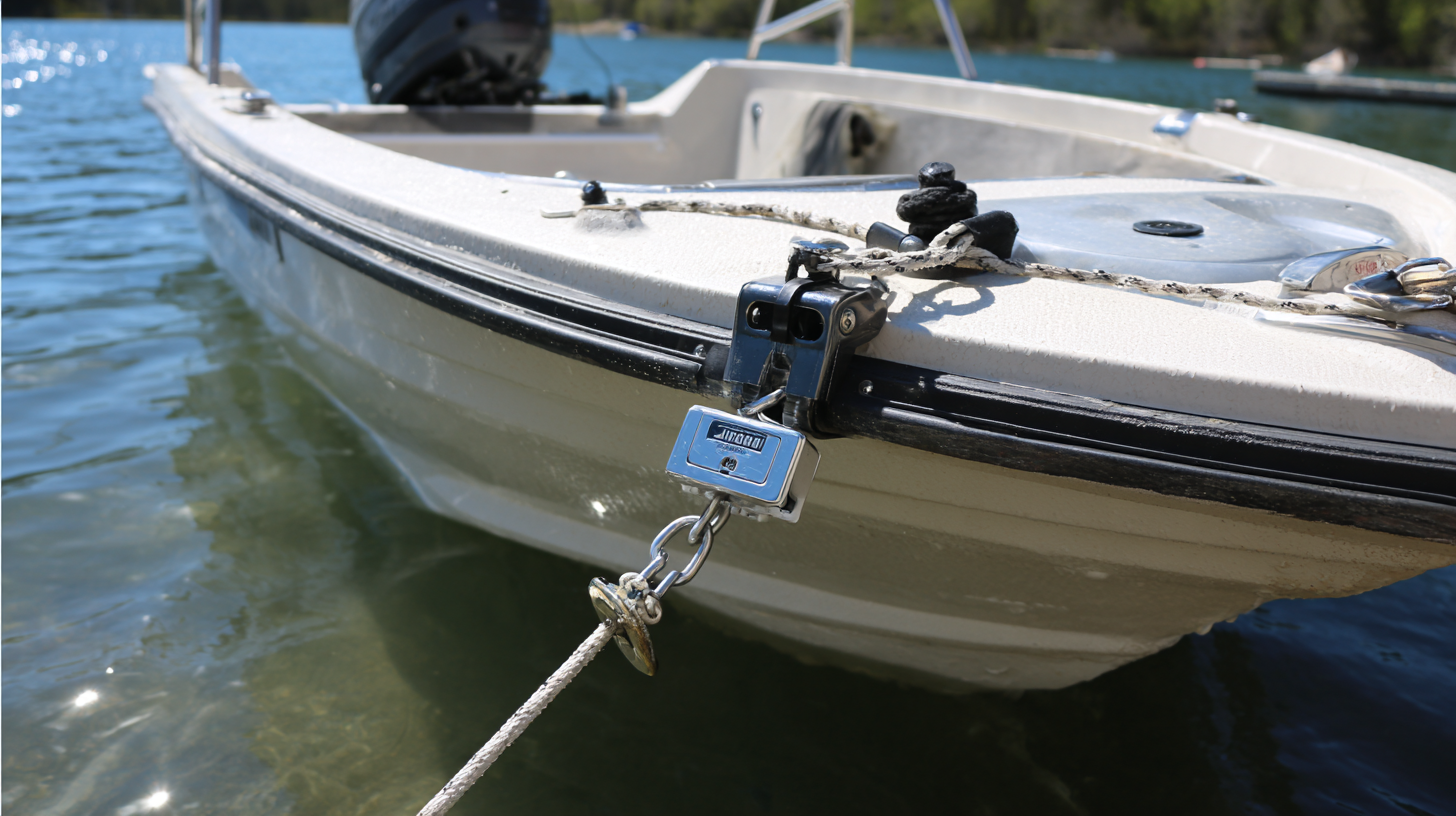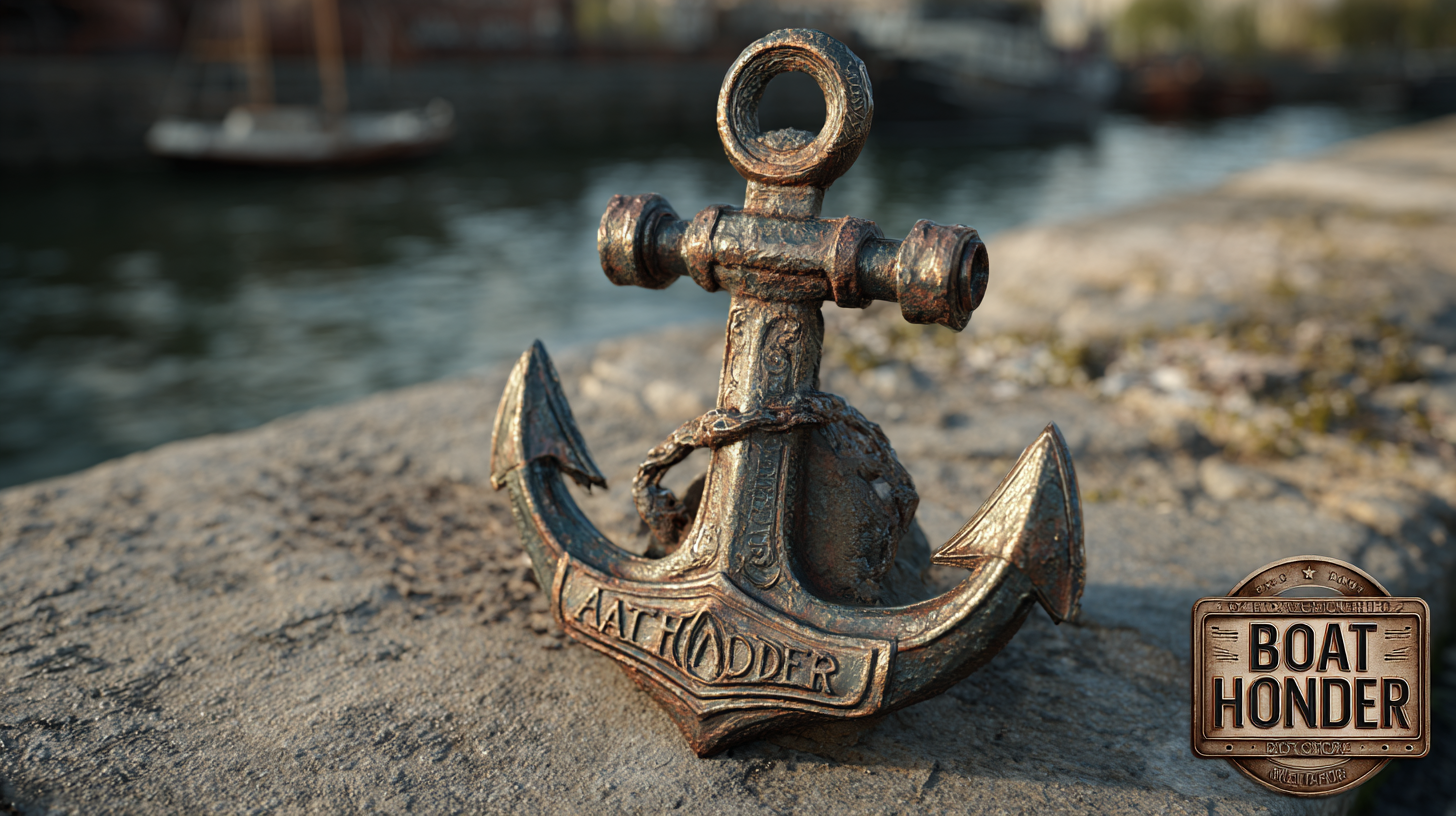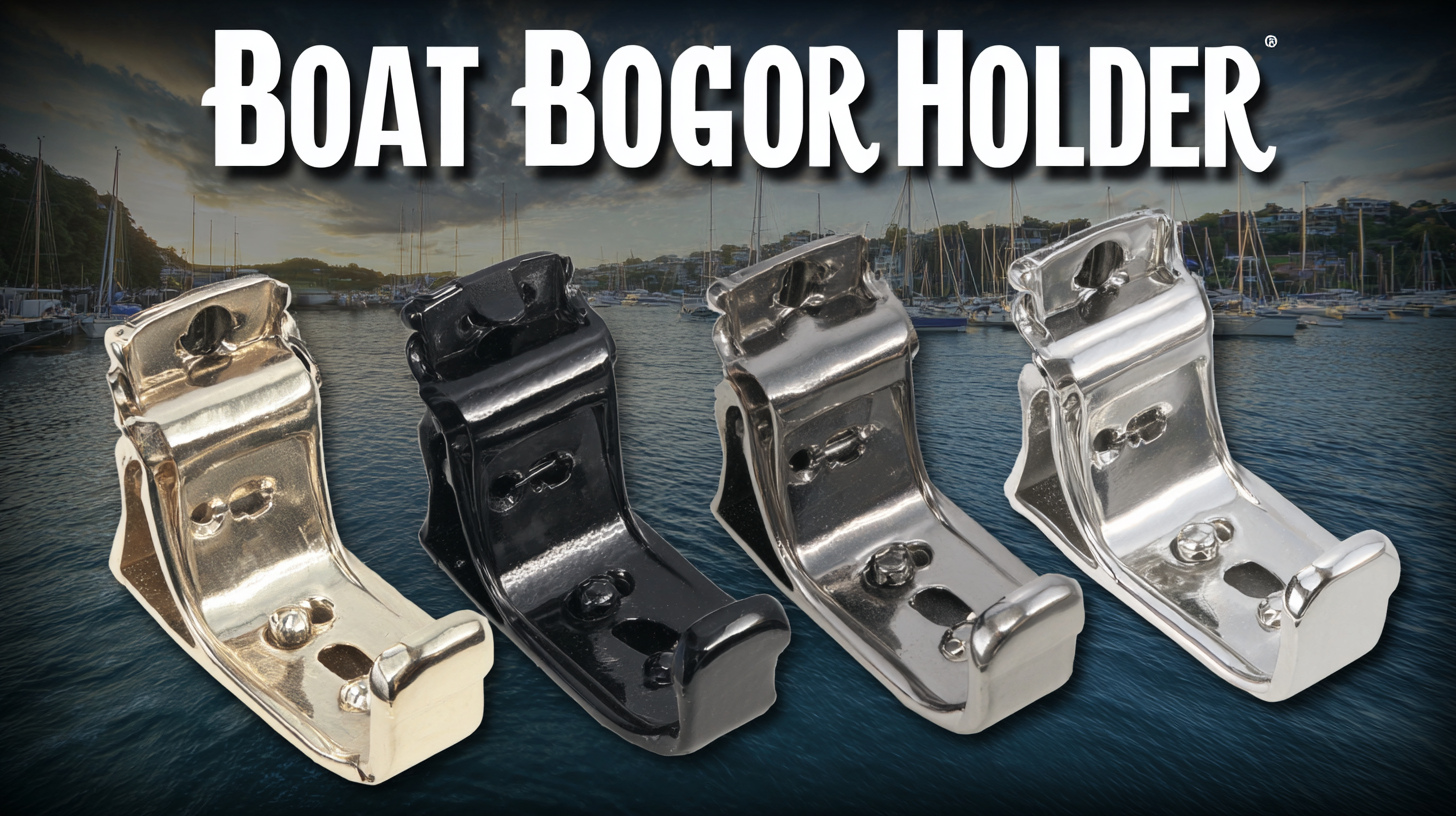
How to Choose the Best Boat Anchor Holder Manufacturer Comparing Quality Features and Pricing
When it comes to selecting a Boat Anchor Holder, the importance of quality, features, and pricing cannot be overstated. According to a report from the National Marine Manufacturers Association (NMMA), the recreational boating industry in the United States has seen sustained growth, with over 15 million registered boats. This surge in boating popularity underscores the necessity for reliable and high-performing equipment, including anchor holders that ensure safety and security on the water. Moreover, a recent study highlighted that nearly 75% of boaters prioritize durability and efficiency when investing in anchoring systems, which makes choosing a reputable manufacturer essential. By examining the benefits of various types of boat anchor holders, consumers can make an informed decision that aligns with their boating needs and enhances their overall experience on the water.

Understanding the Importance of Quality in Boat Anchor Holders for Optimal Performance
When selecting a boat anchor holder, the importance of quality cannot be overstated. A high-quality anchor holder ensures that the anchor performs optimally, providing stability and security during your maritime adventures. A well-designed anchor holder maintains its form and function even in challenging marine environments, reducing the risk of anchor failure, which could lead to unsafe drifting or unwanted grounding. By investing in a quality product, boaters can enjoy peace of mind knowing that their anchor system will operate as intended, no matter the conditions at sea.
One key aspect to consider when evaluating the quality of an anchor holder is the materials used in its construction. Durable, corrosion-resistant materials are essential for longevity and reliability. Additionally, the design should accommodate various anchoring techniques and positions, enhancing versatility. It is also wise to look for products that have undergone rigorous testing and user reviews, which can provide insights into their real-world performance. Remember, choosing a reputable manufacturer that prioritizes quality is essential for ensuring your anchor holder fulfills its role effectively and contributes to a safer boating experience.
How to Choose the Best Boat Anchor Holder Manufacturer Comparing Quality Features and Pricing
| Feature | Manufacturer A | Manufacturer B | Manufacturer C |
|---|---|---|---|
| Material Quality | Stainless Steel | Aluminum Alloy | Galvanized Steel |
| Weight Capacity | 200 lbs | 150 lbs | 250 lbs |
| Corrosion Resistance | Excellent | Good | Fair |
| Price Range | $100 - $150 | $80 - $120 | $200 - $250 |
| Warranty Period | 5 Years | 3 Years | 2 Years |
Key Features to Look for in a Reliable Boat Anchor Holder Manufacturer
When selecting a reliable boat anchor holder manufacturer, it's crucial to consider several key features that can significantly impact the usability and effectiveness of the product. Firstly, the material quality of the anchor holder plays a pivotal role. Manufacturers using corrosion-resistant materials, such as high-grade stainless steel or marine-grade aluminum, help ensure longevity and durability in harsh marine environments. According to the National Marine Manufacturers Association, products made from superior materials can last up to 30% longer than their counterparts, providing better value over time.

Another essential feature to focus on is the design versatility of the anchor holder. Look for manufacturers that offer customizable options to accommodate various types of boats and anchoring systems. A report from the International Boat Industry highlighted that versatile designs could enhance anchoring effectiveness by up to 25%, allowing for smoother operation during different conditions at sea. Additionally, consider the ease of installation and weight capacity; reputable manufacturers should provide comprehensive installation guides and product specifications to assist users in selecting the right anchor holder for their specific needs.
Analyzing Pricing Strategies Among Leading Boat Anchor Holder Manufacturers
When assessing the pricing strategies of leading boat anchor holder manufacturers, it's essential to recognize the intricate balance between quality and cost. According to a recent industry report by the National Marine Manufacturers Association (NMMA), the average price range for quality boat anchor holders typically falls between $30 and $200, depending on size and material characteristics. Manufacturers often employ various pricing strategies, such as value-based pricing, where they price their products based on the perceived value to customers rather than solely on production costs. This approach can enhance brand loyalty, especially in a competitive market.
Tip: When comparing manufacturers, pay attention to the warranty and customer service they offer, as these factors can indicate the reliability and support you can expect post-purchase.
Additionally, promotional strategies, such as seasonal discounts or bundle offers, can significantly influence purchasing decisions. A comprehensive analysis reveals that many reputable manufacturers engage in targeted promotions, especially during peak boating seasons, to attract price-sensitive customers. Understanding these strategies can help buyers make informed decisions that balance quality and affordability, ensuring they choose the best product for their needs.
Tip: Always check for customer reviews and testimonials, as they can provide valuable insights into the performance and durability of anchor holders across different brands.

Comparative Study of Material Durability in Top Boat Anchor Holder Brands
When selecting a boat anchor holder, understanding the material durability across top brands is crucial for ensuring long-term performance and reliability. The market offers a variety of options, including stainless steel, aluminum, and high-strength plastics, each with its unique advantages and drawbacks. For instance, stainless steel stands out for its exceptional corrosion resistance, making it ideal for saltwater environments. However, its weight can be a concern for smaller boats looking to maintain a lighter profile.
On the other hand, aluminum anchor holders are lauded for their lightweight nature and decent durability, although they may not offer the same level of corrosion resistance as stainless steel. High-strength plastics have also gained popularity, as they are often reinforced to withstand harsh marine conditions while remaining budget-friendly. When comparing these materials, it's essential to consider not only the initial cost but also the long-term performance and maintenance needs. Evaluating these features will help boaters make an informed decision, ensuring their anchor holder can withstand the rigors of marine life while fitting within their budget.
Global Market Trends: The Rise of Eco-Friendly Boat Anchor Solutions
The boating industry is experiencing a significant shift towards eco-friendly solutions, particularly in the realm of boat anchor holders. With increasing awareness about environmental sustainability, manufacturers are adapting their production processes and materials to minimize ecological footprints. This trend is not just a response to customer demands but also a proactive step towards preserving marine ecosystems, which are often disturbed by traditional anchoring methods. As boaters become more conscientious about their environmental impact, the appeal for anchors made from recycled and sustainable materials grows stronger.
Innovations in design are also contributing to this eco-friendly movement. New materials, such as biodegradable composites and lightweight alloys, are being utilized to create anchors that perform efficiently while being less harmful to the environment. Additionally, many companies are focusing on developing anchors that reduce seabed scarring, ensuring that marine life can thrive untouched. These advancements signal a broader market trend where sustainability is seamlessly integrated into product development, leading not only to better environmental stewardship but also to enhanced performance and durability in anchoring solutions.
Boat Anchor Holder Manufacturer Quality Comparison
This bar chart compares the quality ratings and price indices of different boat anchor holder manufacturers. The quality ratings range from 1 to 10, while the price index is scaled from 1 to 100, providing insights into the value each manufacturer offers.
